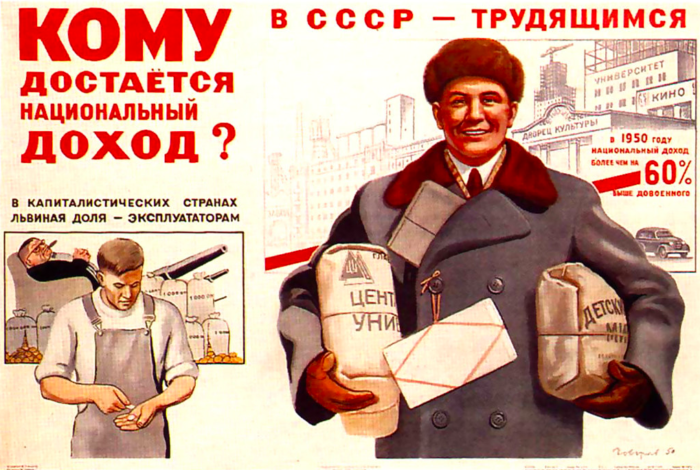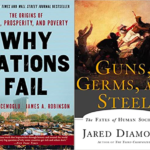A serious consideration of why some countries are economically developed and others aren’t, must include culture. Culture refers to how a nation’s citizens view work, family relationships, the government, other people, and more.
This is not a new topic to economists, culture was called upon by Adam Smith to explain why one man becomes a philosopher and another a bellboy, saying the difference is not from their nature but “from habit, custom, and education.”1
Or Max Weber, with his famous “protestant ethic” hypothesis, a cultural explanation for the explosion in economic development seen after the Protestant Reformation.
Yet modern economists have been slow in considering the role of culture in economic development, primarily due to the difficulty of dealing with culture numerically. The limited research we do have is enough to cement culture as fundamentally important in the outcomes of nations.
Culture is Passed Down
Culture can refer to many things, from different food preferences to quirky traditions, but when used by economists it refers to people’s beliefs and values. It includes the worldview they inherited from their parents and the society they were raised in.
Studies following the behavior of parents and their children, show that traits like savings, trust, patience, and attitude towards risk tend to be passed on between generations.2
Similarly, the cultural values of a society are also passed down from generation to generation, and many of these beliefs will have an effect on behavior that affects the overall economy.
Some Important Beliefs and Values
Culture in the way we’ve defined it is a broad term, consisting of various beliefs and values. Thus, it’s difficult to get a single indicator of culture, instead, economists look at the effect of various individual beliefs on economic outcomes. Here is a list of just some of the beliefs and values that have been found to be important for explaining economic outcomes.
Trust
Of all the cultural traits, trust is one of the most important in developing a robust economy – since all transactions in the marketplace involve an element of trust.
The buyer must believe the product being sold will work and will be given upon payment, the seller must believe that they will receive payment from the buyer.
Or consider trust toward the government and its institutions. This will affect lifespan, retirement, and more. Consider someone who refuses a vaccine or hospital visit due to mistrust, or someone who avoids investment in the stock market, instead relying on cash or gold in their home safe.
From various studies, we know that trust is a cultural trait, that like any other, depends on your background and how you learned to perceive others. For example, historically discriminated groups like African-Americans have generally lower levels of trust towards others than other groups.3
Still other studies show that a person’s level of trust is more important than their risk tolerance in determining whether they’ll invest in the stock market, or go to a bank for a loan, as opposed to a friend.4
These are huge findings, especially when considering that modern economic theory and models are built on risk tolerance based explanations of asset prices.
Individualism vs Collectivism
Some societies promote individualism, that is, individual achievement. On the opposite side, are societies that value collectivism, encouraging conformity to the group interest.
Unsurprisingly, it has been found that individualism, by promoting personal achievement, encourages innovation, one of the most important elements of economic development and prosperity.5
Attitude Towards Work and Poverty
In the Bible, the book of Proverbs says:
“Love not sleep, lest you come to poverty; open your eyes, and you will have plenty of bread.”
This illustrates another of the important cultural traits: beliefs about work and poverty. Is hard work a sure path to success, to never be in a position to beg bread? Or is poverty more determined by luck and outside someone’s control?
Unsurprisingly, what someone believes about the value of work and the cause of poverty will influence their actions.
And peoples’ views on these two matters hugely depends on where they’re from.
Economists have argued that the difference between Europe’s generous welfare programs and America’s more limited programs is due to differences in this belief.6
Culture Affects Nations’ Economic Development
So far, we have seen evidence that culture differs, is to a large part inherited, and plays a big role in explaining individual behavior. But how does culture help us understand why some countries are economically developed, and others aren’t?
Not Just Institutions, Culture Matters Too
One argument made, is that good institutions alone are not enough, the context or culture in which the institutions operate is important.
For example, even if you knew that a business contract would be enforced in court, would you really make as many business deals if it was guaranteed it’d end up as a dispute in court?
Probably not. The trust in the marketplace is important in even allowing the courts to function. Many lawsuits would quickly overwhelm the courts and lead to their demise. This indicates that it doesn’t make sense to think of institutions apart from cultural context.
We see then, that culture shapes economic development by the way it interacts with institutions. It determines which institutions are established, how they function, and is involved in their continual evolution.
And if you read the article on why some nations are poor, you know that the importance of institutions in economic development. The linkage of culture to institutions goes a long way in solidifying it as a major factor in economic development.
Culture and Political Systems
One explanation offered for why democracy works in some countries and hasn’t worked in others, is culture. That is, the prevailing beliefs and values of some countries are at odds with the philosophy behind democracy, preventing it from ever taking hold.
Other researchers go further, arguing that the parent-child relationship of a country explains which ideologies can thrive and which won’t in a country. An example of this is communism, which worked in societies like Russia because the parent-child relationship is authoritarian vertically (relationship between parents and children is authoritarian) and egalitarian horizontally between siblings (children are all equal, i.e. the inheritance is split equally).
The argument goes, since the people were accustomed to this kind of family relationship, it was easily adopted on the state level as well.7 Whereas in societies that didn’t have this kind of family structure (most of Western Europe), communism failed to take off, despite attempts.
A Way of Thinking About Culture and Institutions
How then should we think of culture in determining economic development? The flow-chart below is a good summary of the ideas presented in this article:

As political economists Alberto Alesina and Paola Giuliano say8:
“the same institutions may function differently in different cultures, but culture may evolve in differing ways depending on the type of institutions”.
Thus, we have seen that culture plays an important role in economic development. It’s still a young research area and more remains to be uncovered, but we can be sure that the mystery of economic development, and why some nations are rich and others poor, is intertwined with culture.
[expand title=”Expand Sources”]
- Smith, Adam, and Edwin Cannan. The Wealth of Nations. New York, N.Y: Bantam Classic, 2003. Print. (p 25)
- Knowles, John A., Postlewaite,Andrew, 2004. Do Children Learn to Save fromTheir Parents? UnpublishedManuscript, University of Pennsylvania., and Dohmen,Thomas, Falk,Armin, Huffman, David, Sunde, Uwe, 2012. The intergenerational transmission of risk and trust attitudes. Review of Economic Studies 79 (2), 645–677.
- Alesina, Alberto, and Paola Giuliano. “Culture and institutions.” Journal of Economic Literature 53.4 (2015): 905
- Guiso, Luigi, Paola Sapienza, and Luigi Zingales. 2004.“The Role of Social Capital in Financial Development.” AND Guiso, Luigi, Paola Sapienza, and Luigi Zingales. 2008a.“Social Capital as Good Culture.” Journal of the European Economic Association 6 (2–3): 295–320. AND Guiso, Luigi, Paola Sapienza, and Luigi Zingales.2008b. “Trusting the Stock Market.” Journal of Finance 63 (6): 2557–2600.
- Gorodnichenko, Yuriy, and Gerard Roland. 2013a.“Culture, Institutions and Democratization.” Unpublished.
- Alesina,Alberto, Glaeser, Edward, 2004. Fighting Poverty in the U.S. and Europe. Oxford University Press,Oxford, UK.
- Todd, Emmanuel. 1990. L’Invention de l’Europe. Paris:Seuil.
- Alesina, Alberto, and Paola Giuliano. “Culture and institutions.” Journal of Economic Literature 53.4 (2015): 938.
[/expand]



